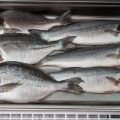Introduction: Unpacking the British Sea Angling Identity
When it comes to quintessentially British pastimes, sea angling holds a special place along the nation’s wind-battered coastlines. For centuries, communities from Cornwall to the Scottish Highlands have been intrinsically linked with the sea—not just as a means of survival, but as a source of recreation, tradition, and camaraderie. Today, this deep-rooted relationship continues to shape local culture and lifestyle, with sea fishing emerging as both a beloved leisure activity and a proud heritage. From historic harbour towns where generations of anglers have cast their lines at dawn, to bustling seaside villages hosting annual fishing festivals, the lure of the ocean remains irresistible for many Britons. This enduring popularity isn’t merely nostalgic; it’s woven into the daily fabric of coastal life. Whether it’s tales of record-breaking catches traded in the pub or families gathering on pebbled beaches for weekend mackerel hunts, British sea angling is more than a sport—it’s an identity shared across regions and generations. As we delve deeper into this fascinating world, we’ll discover how these cultural threads influence the guided charter experience and continue to attract locals and visitors alike to Britain’s storied shores.
2. Traditions Afloat: Quintessential British Sea Fishing Customs
Step aboard any British sea fishing charter, and you’ll find yourself immersed in a world where time-honoured traditions are as integral as the rods and reels. The culture of sea angling here is steeped in rituals passed down through generations, and these customs infuse every charter trip with a sense of heritage and camaraderie.
Harbour Tales and Local Legends
From Cornwall to the Scottish Highlands, each coastal region boasts its own set of stories—tales of legendary catches, shipwrecks, and the characters who have shaped local maritime lore. Charter skippers often recount these tales as they navigate iconic harbours like Whitby, Brixham, or Oban, giving guests a taste of authentic British storytelling. It’s not just about the fish—it’s about feeling connected to the long lineage of sea folk who have braved these waters before.
Rituals Before Casting Off
No guided charter sets sail without its pre-departure traditions. Many crews observe superstitions such as avoiding bananas onboard (considered bad luck), or performing a quick toast with a cup of tea before heading out to sea. These small acts bring both luck and laughter, setting the tone for a day rooted in British custom.
Iconic Harbours: Gateways to Tradition
| Harbour | Region | Distinctive Tradition |
|---|---|---|
| Whitby | Yorkshire | Mooring at dawn for good fortune |
| Brixham | Devon | Fish auction rituals upon return |
| Oban | Scotland | Telling tales of mythical sea creatures |
| Penzance | Cornwall | Singing sea shanties before departure |
The Heartbeat of Community Spirit
The social aspect is impossible to overlook. Onboard, seasoned anglers gladly share tips with novices, and there’s always room for friendly banter over a steaming mug of builder’s tea. At day’s end, many charters encourage the traditional “catch-and-cook” experience—grilling the day’s haul on deck or back at the harbour pub, reinforcing bonds between guests and crew alike. This collective spirit encapsulates what makes British sea fishing truly special: it’s not just an outing; it’s joining a living tradition.

3. From Pub Banter to the Deck: The Social Fabric of Guided Charters
Step aboard any British sea fishing charter, and you’ll quickly realise that the experience is about much more than rods, reels, and the day’s catch. It’s an extension of Britain’s cherished pub culture—where camaraderie, light-hearted ribbing, and an unmistakable sense of community set the tone for the entire trip. Just as regulars gather at their local for a pint and a natter, anglers—both seasoned veterans and eager first-timers—find common ground on deck, swapping tales of ‘the one that got away’ with genuine warmth. This social tapestry is woven together with quintessential British humour: dry wit, a dash of self-deprecation, and the odd cheeky remark are all part of the fun, breaking the ice even on blustery mornings. Skippers often act as both guides and genial hosts, sprinkling local knowledge with amusing anecdotes about the coastline or legendary catches from years gone by. For visitors new to these waters, this blend of insight and banter makes every outing feel like joining an old friend for an adventure; for returning regulars, it’s a homecoming wrapped in laughter. The unique social dynamic not only enriches the fishing but also fosters lifelong friendships and shared stories that linger long after lines have been reeled in.
4. Savouring the Catch: British Culinary Traditions at Sea
One of the most charming aspects of a British sea fishing charter is how it transforms the day’s catch into a true celebration of local flavours and time-honoured culinary traditions. The journey doesn’t end once the lines are reeled in; instead, the real pleasure begins with preparing and sharing the spoils of the sea. Whether you’re enjoying a freshly battered fillet on deck or savouring a pint at a cosy harbour pub, food is central to the guided charter experience and deeply rooted in British coastal culture.
From Deck to Dish: Freshly Prepared Aboard
Many guided charters offer guests the unique opportunity to cook their catch right on board. It’s not uncommon for skippers to share family recipes or classic methods for preparing fish, from grilling mackerel over open flames to crafting hearty fish stews that warm even the chilliest of sea days. The immediacy of these meals—often seasoned with just salt, vinegar, and a squeeze of lemon—captures the essence of British seaside cooking: simple, fresh, and utterly satisfying.
Classic Seaside Favourites
No discussion of British sea fishing would be complete without mentioning the iconic fish and chips. Many local pubs partner with charter operators to fry up your catch in golden batter, served alongside chunky chips and mushy peas—a staple pairing found in nearly every coastal village. For those seeking something different, traditional dishes such as fish pie or smoked kippers frequently make an appearance on seaside menus, reflecting regional preferences and historical ties to maritime trade.
Popular Ways to Enjoy Your Catch
| Dish | Description | Where You’ll Find It |
|---|---|---|
| Fish & Chips | Battered and fried fillets served with thick-cut chips and tartare sauce. | Pubs, beachside shacks, aboard charters |
| Mackerel on Toast | Grilled mackerel fillets placed atop crusty bread, often with horseradish or pickled onions. | Aboard charters, traditional cafés |
| Smoked Kippers | Cured and smoked herring, typically served for breakfast with buttered bread. | B&Bs, guesthouses, seaside hotels |
| Fish Pie | Creamy pie filled with mixed fish, topped with mashed potato. | Pubs, harbour restaurants |
| Cockle Chowder | A warming soup made from cockles, potatoes, cream, and herbs. | Harbour-side eateries, home kitchens |
The Social Ritual of Sharing Seafood
Sitting down together after a day at sea—whether on deck or in a bustling pub—brings people closer through stories exchanged over shared plates. Guided charters often encourage this social aspect by organising group meals where everyone contributes their catch. This ritual reflects the community spirit found throughout Britain’s fishing villages: an openness to newcomers and a pride in local bounty that transforms every meal into a memorable part of your adventure.
5. Tides of Change: Sustainable Fishing and Modern British Values
The spirit of British sea fishing is evolving, swept along by a rising tide of environmental consciousness and a renewed respect for the rich marine ecosystems surrounding these isles. Today’s guided charter experiences are no longer just about landing the biggest catch; they reflect modern British values—responsibility, stewardship, and sustainability—that influence both skippers and guests alike.
Environmental Awareness on Board
Many charter operators now actively promote conservation, educating guests about local habitats, seasonal fish populations, and the importance of leaving minimal impact behind. It’s common for guides to brief anglers on sustainable practices, from using circle hooks to catch-and-release techniques, ensuring that the thrill of the chase doesn’t come at the expense of future generations’ enjoyment.
Respect for Marine Life
British charters emphasise a respectful relationship with the sea. This means not only following quotas and respecting closed seasons but also taking pride in knowing which species are under threat. Guests often find themselves learning as much about marine biodiversity as they do about angling tactics—turning each outing into an informal masterclass in marine conservation.
Regulations Shaping the Experience
With stricter government regulations and EU directives influencing daily operations, today’s charters are adapting fast. Bag limits, protected areas, and real-time catch reporting all shape the rhythm of a day at sea. Far from being seen as red tape, these measures are embraced by many skippers as part of their duty to protect Britain’s maritime heritage—ensuring that both locals and visitors can enjoy sustainable sea fishing adventures for years to come.
Ultimately, these tides of change mean that every trip on a British charter boat isn’t just a leisure pursuit—it’s a step towards safeguarding our seas, weaving together tradition with forward-thinking values in the ever-evolving story of British sea fishing culture.
6. Bringing It All Ashore: Lasting Memories and Local Charm
There’s something unmistakably British about returning to shore after a day at sea, the salt on your skin and the wind in your hair, ready to recount your adventure over a steaming cup of tea or a pint at the local pub. The guided charter experience isn’t just about the thrill of the catch; it’s about embracing the entire tapestry of British coastal life. From the rugged cliffs of Cornwall to the pebbled shores of Brighton, each fishing trip is steeped in local character—shaped by centuries-old traditions, regional dialects, and that quintessentially dry British humour shared between skipper and guest.
The landscape plays its part too, offering sweeping views that change with every tide and weather front. There’s a unique serenity in watching mist roll across the water or spotting a lighthouse flicker on the horizon—a reminder of Britain’s enduring relationship with the sea. Yet what lingers most are the people: the friendly banter, helpful tips from seasoned anglers, and warm welcomes found in harbourside cafés. Here, hospitality is more than service; it’s an invitation to become part of a living heritage.
As you bring your catch ashore, perhaps even participating in the age-old ritual of sharing it among friends or grilling it right on the beach, you realise that British sea fishing isn’t just an outdoor pursuit—it’s a deeply social experience rooted in community and tradition. The guided charters amplify this feeling, blending expert knowledge with a sense of belonging that only comes from genuine local engagement.
Ultimately, whether you’re a first-time visitor or a seasoned angler, these moments linger long after your boots have dried and your stories have been told. The charm of British sea fishing lies not just in its waters but in the memories crafted along its coasts—a gentle reminder that here, every voyage is as much about connection as it is about adventure.

